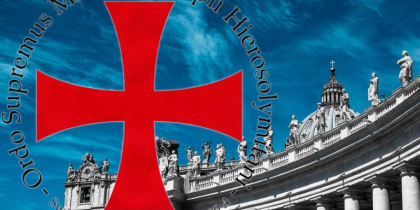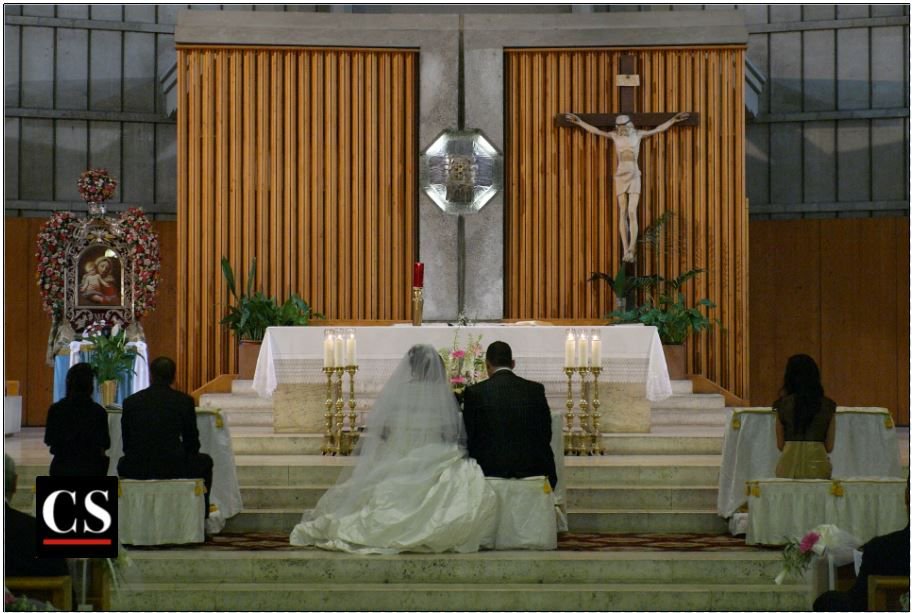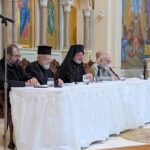This week, several Catholics in Pittsburgh are going to declare their resistance to Pope Francis at the Catholic Identity Confernece. They claim three main issues where Pope Francis needs resisting but on all three they are wildly off-target. They interpret prudence as dogma or make wild leaps of logic. Before getting to where they err, I will offer a little background and present their press release.
Background on the Catholic Identity Conference

The Catholic Identity Conference started in 2018 as far as I can tell. I first became aware of it last year. From the name, I expected talks on important doctrinal issues where the church is attacked or which identify serious Catholics vs. non-practicing Catholics like contraception, marriage and divorce, a male-only priesthood, the seal of the confession, etc. But I saw none on their schedule from 2021. Most are dedicated to defending the extraordinary form, which is a perfectly OK expression of Catholicism but is not the only expression of Catholic identity. It even included 2 or 3 talks on COVID and vaccines, seemingly at odds with the Church.
This year’s conference seems similar with more militant titles to the talks. Again, no talks directly on the important doctrinal issues above that are marks of Catholic identity.
The diocese of Pittsburgh, where it takes place, has also told The Pillar, “The Diocese of Pittsburgh is in no way affiliated with this event. The diocese does not support, endorse, or encourage people to attend this event.”
The CIC’s Press Release
I leave this for you to read:

1: Restricting Extraordinary Form
There is plenty one can argue about the prudence of Traditionis Custodiae. About 1/200 Catholics at Mass on an average Sunday before it in the USA were attending an extraordinary form Mass. This is a small percentage, but still about 120,000 Catholics. If it is helping them spiritually, I’m for it.
The claim is not that this was imprudent or similar, which are defensible positions. The argument is that it went against natural justice and is religious discrimination. People have a natural justice right to worship according to their religion. But that does not mean they can practice any way they see fit and call it X religion.
In any religion, the religious authorities have a right to regulate the rituals of their religion. Take a tangentially related example: around the time of Jesus, the Jewish canon was fluid so a synagogue was free to read 1 Maccabbees as Scripture & be united with the rest of the Jewish community. However, in the 2000 years since then, Jewish leaders have determined that is not canonical, a Jewish synagogue cannot read it as Scripture and claim to still be fully orthodox with the rest of the Jews. The proper rite – orthopraxis – often indicates the right belief – orthodoxy. A rabbi who reads 1 Macceebees as if it were Scripture likely believes it is Scripture. Likewise inthat the Pope has the right to regulate certain rites within the Church.
This is even more so in a clearly hierarchically organized religion like Catholicism. A large part of Catholic identity is union with the Pope. If they want to argue that extraordinary form is a different religion from Roman Catholicism, that is their prerogative, but they are separating from the Church, not vice versa.
2: Amoris Laetitia
Both Dr. Robert Fastiggi and I have independently looked at the text of Amoris Laetitia with a fine tooth comb and found orthodox answers to the dubia within the text. Fastiggi wrote here. I quote from my piece on the topic:
Regarding the 1st dubium (footnote 351):
This footnote comes after a whole list of forms of human weaknesses in 305 of Amoris Laetitia which mitigate the culpability an individual has for a particular sin such as ignorance… if someone has a habit or strong carnal desires, they may currently desire never to fall into this sin again but realize they are likely to fall due to weakness — this goes back to the drunkenness example above. The case here is not someone who intentionally and knowingly chooses to continue in a sexual relationship with a non-spouse. Instead, it would seem to refer to situations like a person who did not realize their “second marriage” was invalid, or someone giving up sexual relations after an extended period of having relations with their “second spouse,” but then falling.
It is important to note that Francis prefaces the whole footnote with “In certain cases” which clearly indicates not all cases. […] Setting one’s will on performing an act that is a mortal sin, precludes absolution according to Trent, hence it is not possible to absolve a person who freely and knowingly intends to go against Church teaching in grave matter. If a person has commited a mortal sin that has not been absolved, no sacrament would fulfill the criteria this footnote refers to: “A person [who] can be living in God’s grace, can love and can also grow in the life of grace and charity.” …
Alternatively, Granados, Kampowski and Pérez-Soba argue that the help of the sacraments does not mean the fullness of the sacrament but things like attending Mass without Communion or going to confession for advice but not absolution… Pope Francis also gave an example elsewhere of his niece and her partner who were awaiting an annulment and would go to confession for advice but begin by mentioning they could not be absolved.
Regarding the 2nd and 3rd dubia:
The document states: “It can no longer simply be said that all those in any ‘irregular’ situation are living in a state of mortal sin and are deprived of sanctifying grace.” The question arises whether Amoris Laetitia intends to argue that irregular situations are not objectively grave, which would then mean Communion could be given without reservation in such cases.
Here it is important to go back to the texts above [in part 1 of this 2 part article] distinguishing those who intend to live the Church’s teaching but fall, or those who are ignorant of the Church’s teaching or who lack the freedom to live it, from those who knowing the Church’s teaching, make no effort to live it, and continue to live together in sexual intimacy. The Church has always taught that a mortal sin, depriving the person of sanctifying grace, requires grave matter, knowledge of the sin, and sufficient freedom. Many people in irregular situations either do not realize the irregularity or have some restriction on their freedom. This restriction must go beyond ordinary concupiscence and tendency to sin — as otherwise there would almost never be a mortal sin. However, as noted above, it would not be unheard of for a person in a country with a large number of divorces not to realize that their second marriage before a non-Catholic minister was not valid.
Regarding the 4th and fifth dubia:
Some argue Amoris Laetitia instructs the faithful to follow their conscience no matter how formed (or unformed) it is with regard to receiving Communion. If this statement is qualified as following a properly formed conscience, it is true because a properly formed conscience would be sufficiently aware of natural, divine, and Church law to avoid Communion if outside a state of grace and/or intending to sin gravely again. Some will phrase this as discernment — which is an exercise of the conscience — which likewise could either mean letting people do whatever or leading them to live properly.
The explanations of Vatican II and John Paul II regarding conscience are prerequisites to reading Francis’s treatment of conscience in a hermeneutic of continuity. […]
If someone interprets this [Amoris Laetita 303] as saying it is fine to willingly choose adulterous relations that they know are adulterous or choose relations that they have a culpably erroneous conscience regarding, it obviously creates problems. However, there are several issues with this interpretation, primarily translation, wider context and meeting people where they are.
You can read a more in-depth analysis, read my piece over at Homiletic & Pastoral Review. (Part one: positive argumentation; part two: reply to objections.)
Even if you think my reading is not the most obvious, you must give the Pope the benefit of the doubt on things like this. We are obliged to read it in the hermeneutic of continuity.
3: Jumps of Logic
The third point the Catholic Identity Conference makes is not really one single point but a bunch of loosely related points with big jumps of logic added to connect them.
First, it seems to be a critique of how Pope Francis accepted the overwhelming scientific consensus that humans can and are causing damage to the environment in Laudato Si. This can happen both locally such as chemical runoff in rivers, and more globally with increased emissions. THe evidence for this being true in a general sense (not super specific sub-arguments) is very strong. Francis is even careful to propose more general ideas, not specific, which I think is good for the nature of such a document. For example, he says, “There is an urgent need to develop policies so that, in the next few years, the emission of carbon dioxide and other highly polluting gases can be drastically reduced,” (LS 26) not specific goals or details. A lot more prudence and specific expertise not proper to theology is needed as we go into details on such proposals.
Laudato Si’ does call for us to take care of this earth for future generations, but it is hard to argue it is “hysteria” as the CIC claims. I have seen some claims around climate that can rightly be called hysteria, but Laudato Si’ is far from them.
Then, they make a jump from this to the World Economic Forum (WEF) as they also propose similar ideas. However, they are not mentioned in Laudato Si’. If you think WEF is evil (a debated point), then this is a classic unpleasant bedfellows or guilt by association logical fallacy. We should avoid this as in the public sphere this is so often used by others in the aboriton debate where the pro-abortion side will argue for abortion by saying that some unpleasant group (Nazis, white supremicists, etc.) are pro-life: besides often being false, this is a logical fallacy. We should not use the same fallacy on fellow Catholics.
Then as the WEF supported lockdowns of some form over COVID, it is lumped in again with Pope Francis and the Vatican. It’s interesting that they choose to associate this with the WEF, which they evidently don’t like over politicians they do like, when basically every developed nation did some form of lockdown. I agree many went too far, but I’ve never seen Francis pushing for the more extreme versions of lockdowns. (My personal suspicion is most US states were about where prudence would land without making precise judgements requiring skills outside my skillset.)
They then go on to say that there was something horrendous and different aboutchurches being closed. This has been repeatedly the pattern in pandemics. local churches were often closed for a month or so during the Spanish flu when it came to town. Even St. Charles Borremeo closed Churches when the plague came to Milan. If the COVID lockdowns were “crimes against humanity”, I can only assume that so too were St. Charles Borremeo’s. I doubt saying a saint committed a crime against humanity is a good look for an event billed as a “Catholic Identity Conference.”
Also, it simply is not a crime against humanity restrict the celebration of the sacraments for a short period of time when going to Mass may not be best for the faithful’s human flourishing due to high health risks.
Conclusion: the Catholic Identity Conference’s claims Are Weak
The claims above by the Cathoilc Identity Conference are weak. They make undue claims about restricting extraordinary form. They misread Amoris Laetitia to assume a reading of it contrary to good theology. They makes several jumps of logical and logical fallacies to try to make some connections to the WEF. Their “resistance,” whatever the details is not based on a strong coherent argument. The Catholic Identity Conference is presenting something at odds with real Catholic identity in their resistance.










I’m slightly confused as to how you can write such a long response to the press release, which was simply a few-sentence intro to the real arguments, which were made today and go into much more detail…the press release was very obviously not the whole argument. I would urge you to check back in and view the whole event.